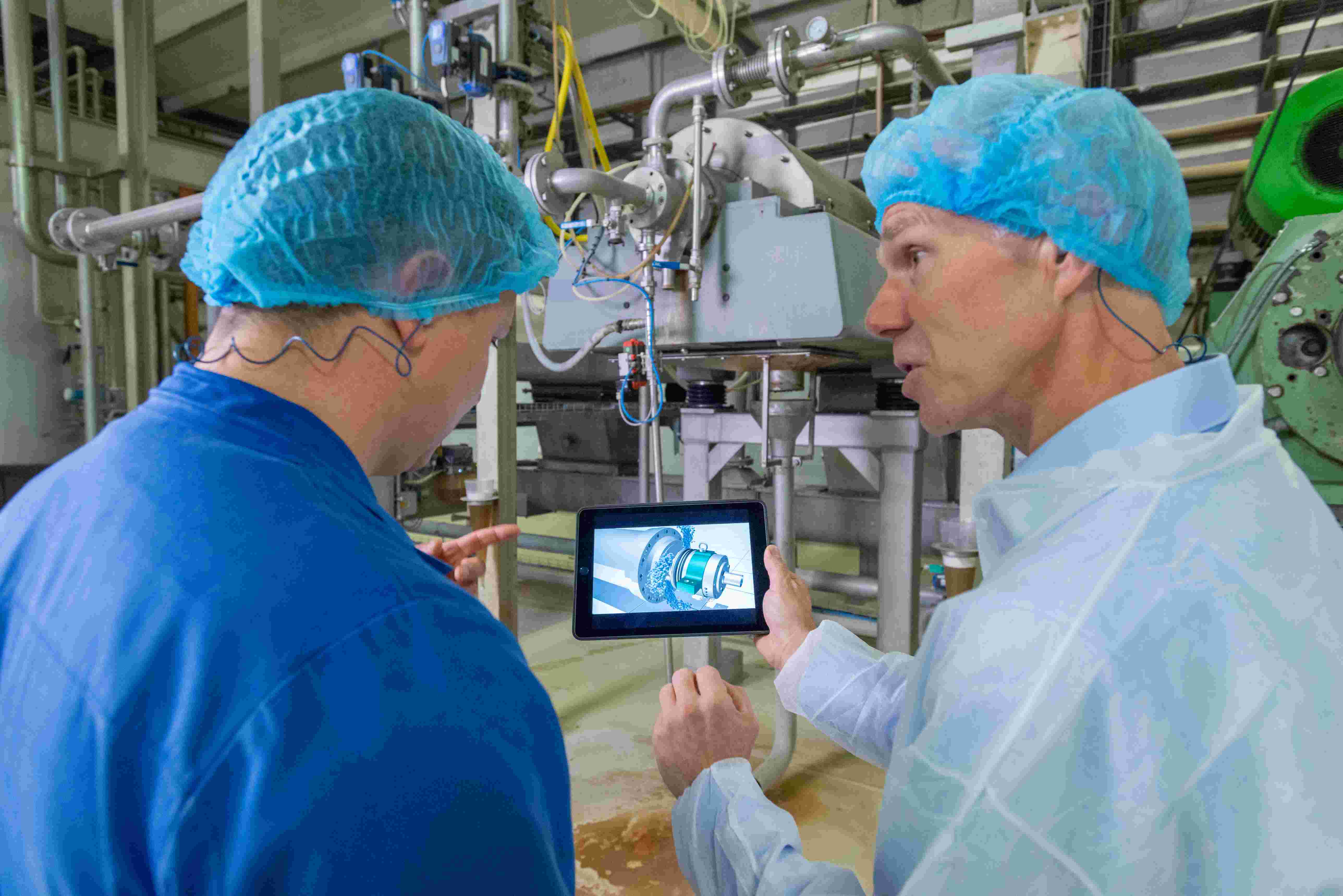

Düsseldorf, May 17, 2021 – For the new construction and expansion of its potato protein production line at the Wietzendorf site in Germany, the Emsland Group, an international market leader in this sector, is once again calling on the expertise of GEA. The Emsland Group manufactures products out of plant-based raw materials for the food and other industries, and previously partnered with GEA in 2018 for the construction of its new protein line at the German Kyritz plant. The follow-up order for the production line in Wietzendorf, valued in the low single-digit million-euro range, includes planning, delivery, and installation support for the entire process line for converting potato juice into high-quality protein. In addition to the plate heat exchangers, fittings, measuring instruments and pumps required, the contract includes several protein Master CF6000 decanters.
During the selection process, the outstanding performance of the process line at the Kyritz site along with the expertise of the GEA product managers were the determining factors in the decision to award the contract for the new project. “When it comes to protein recovery, the quality of the end product as well as the professional management of the process to ensure a high yield from centrifugal separation are critically important,” Tobias Niemeyer, project engineer at the Emsland Group’s Wietzendorf location, explains. “Along with the excellent advice and planning provided by the GEA product and project managers, we were particularly impressed with the outstanding performance and flexibility of the decanters. They offer both the necessary adjustment options to react flexibly to the quality of our natural products and the reliability we need to meet our high-quality expectations with
constant as well as fluctuating processing outputs,” Tobias Niemeyer adds.
Ensuring reliable and precise separation of different constituents is also important because the company uses every component of the raw material to refine other products. This also includes potato fibers, which are refined and processed as pulp that is used to make products such as animal feed. The Emsland Group ordered an additional GEA decanter to do this. “GEA checks all the boxes. With its process expertise in decanter technology, GEA is a reliable and important partner for our protein recovery processes,” Carsten Koops, Head of Procurement at the Emsland Group, confirms.
The Emsland Group processes around 2.2 million tons of vegetable raw materials such as potatoes, peas, and mung beans each year at its sites in Germany, making them into products that are exported to more than 120 countries. The Wietzendorf starch plant is situated in the middle of the Luneburg Heath close to the town of Soltau in northern Germany. Here, some 254,000 tons of potatoes are processed during each campaign, producing up to 60,000 tons of starch products.
The product portfolio of the Emsland Group includes flakes, granulates, starches and starch derivatives that are used as thickening and binding agents not only in the food industry but also in the building materials, adhesive and paper industries. They also manufacture dextrins, fibers and proteins whose numerous applications include the production of animal feed.
About GEA
"Engineering for a better world" is the driving and energizing principle connecting GEA’s total workforce of approximately 18,500 employees. As one of the largest systems suppliers, generating group revenues in the amount of EUR 4.9 billion in 2019, GEA makes an important contribution to a sustainable future with its solutions and services, particularly in the food, beverage and pharmaceutical sectors. Across the globe, GEA’s plants, processes and components contribute significantly to the reduction of CO2 emissions, plastic use as well as food waste in production. GEA is listed on the German MDAX and the STOXX® Europe 600 Index and also included in the DAX 50 ESG and MSCI Global Sustainability
indexes.






